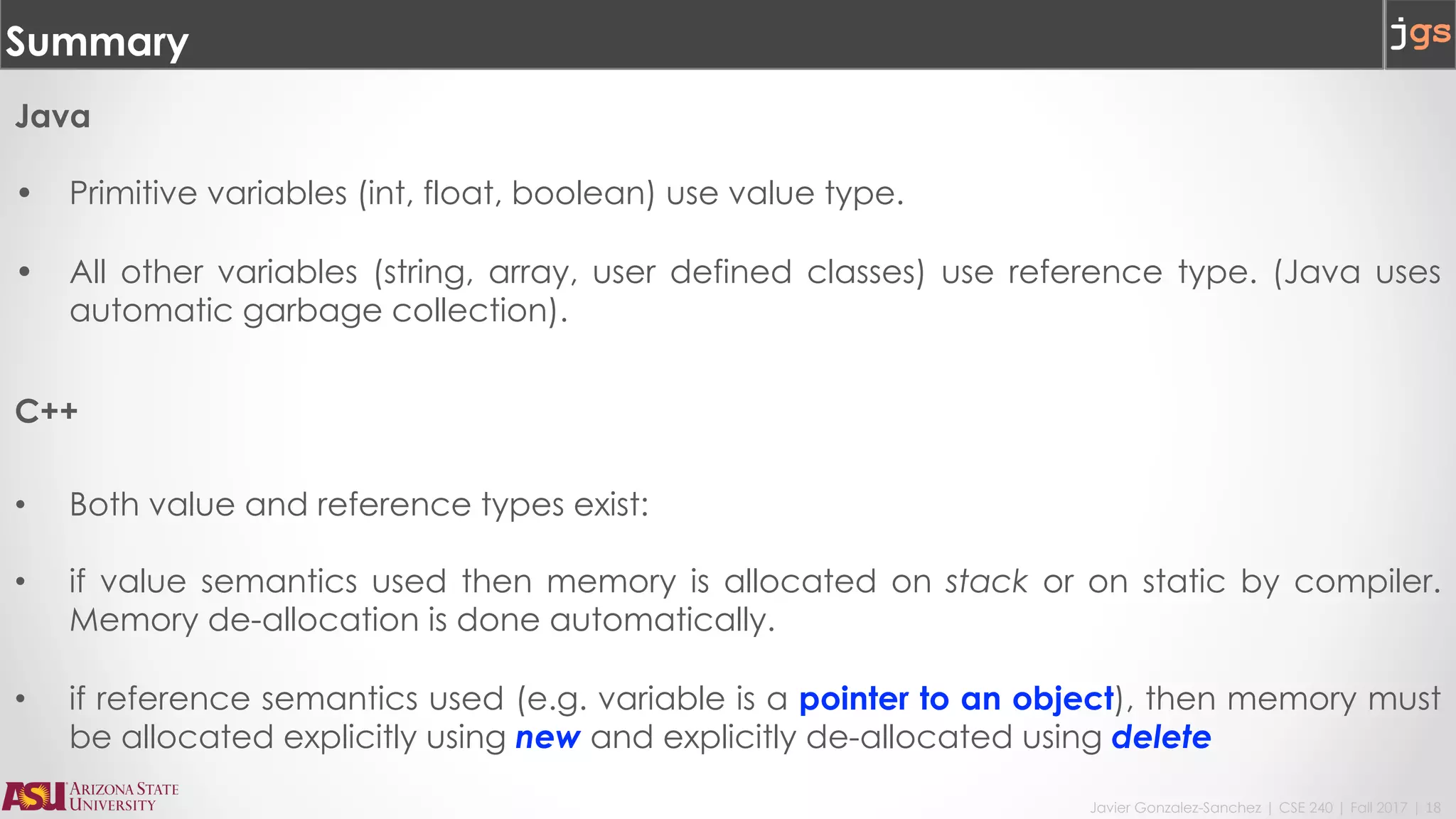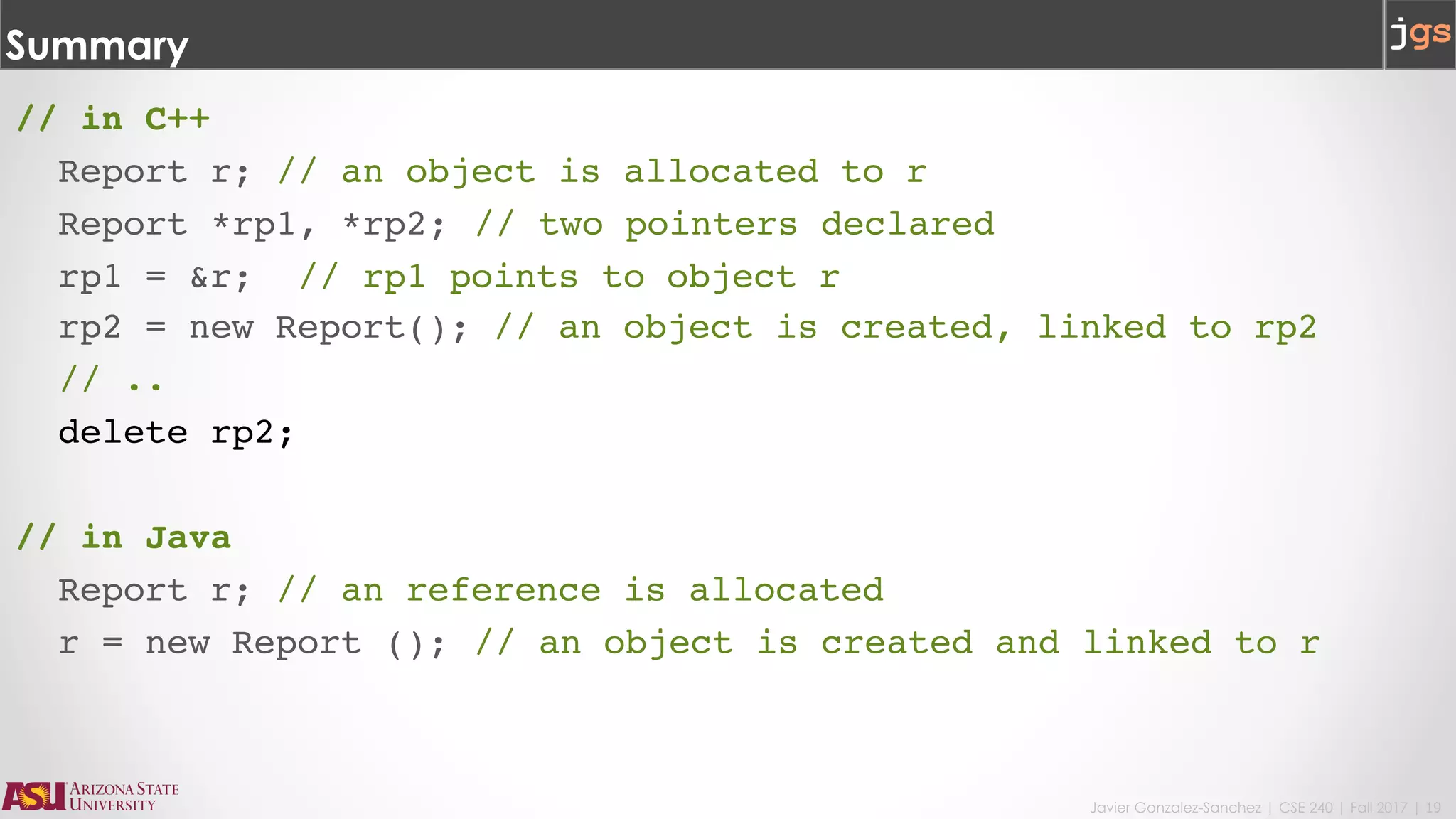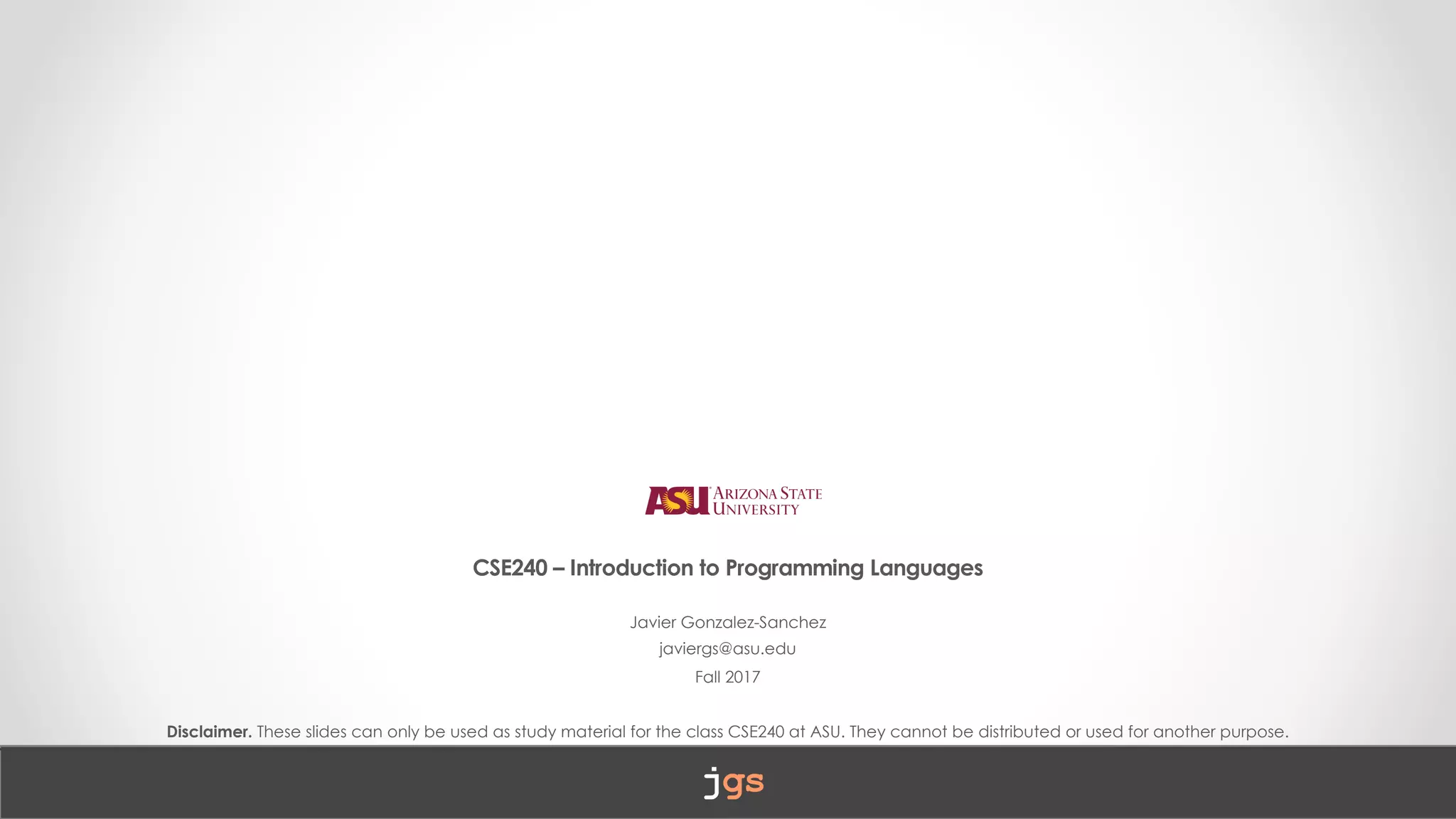This document contains lecture slides about memory management in C++. It discusses static variables, constructors and destructors, and use of new and delete operators. Static variables are shared among all class instances and changes to them affect all instances. Constructors initialize objects and destructors clean them up. new allocates memory on the heap while delete frees it and calls the destructor.
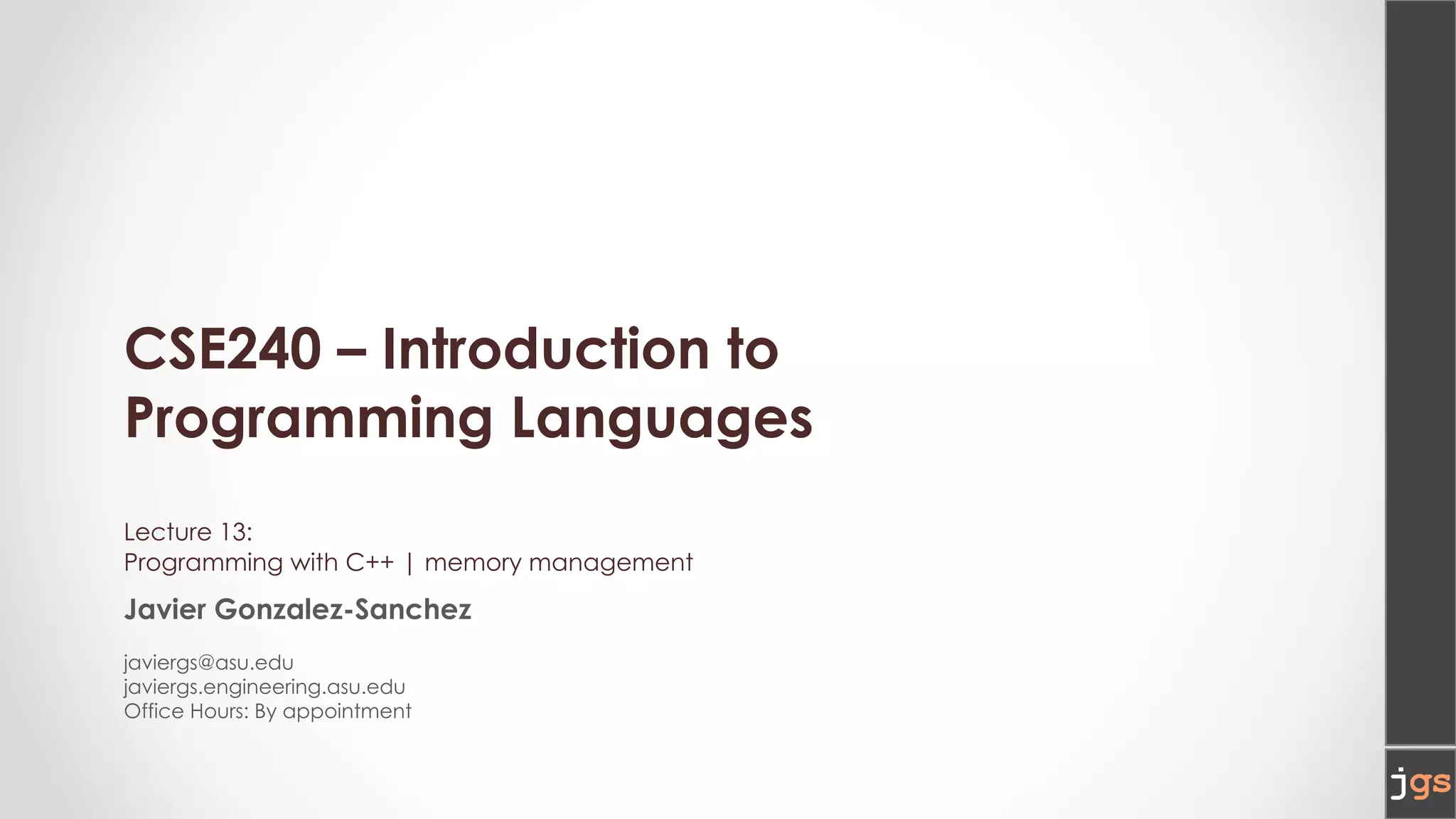
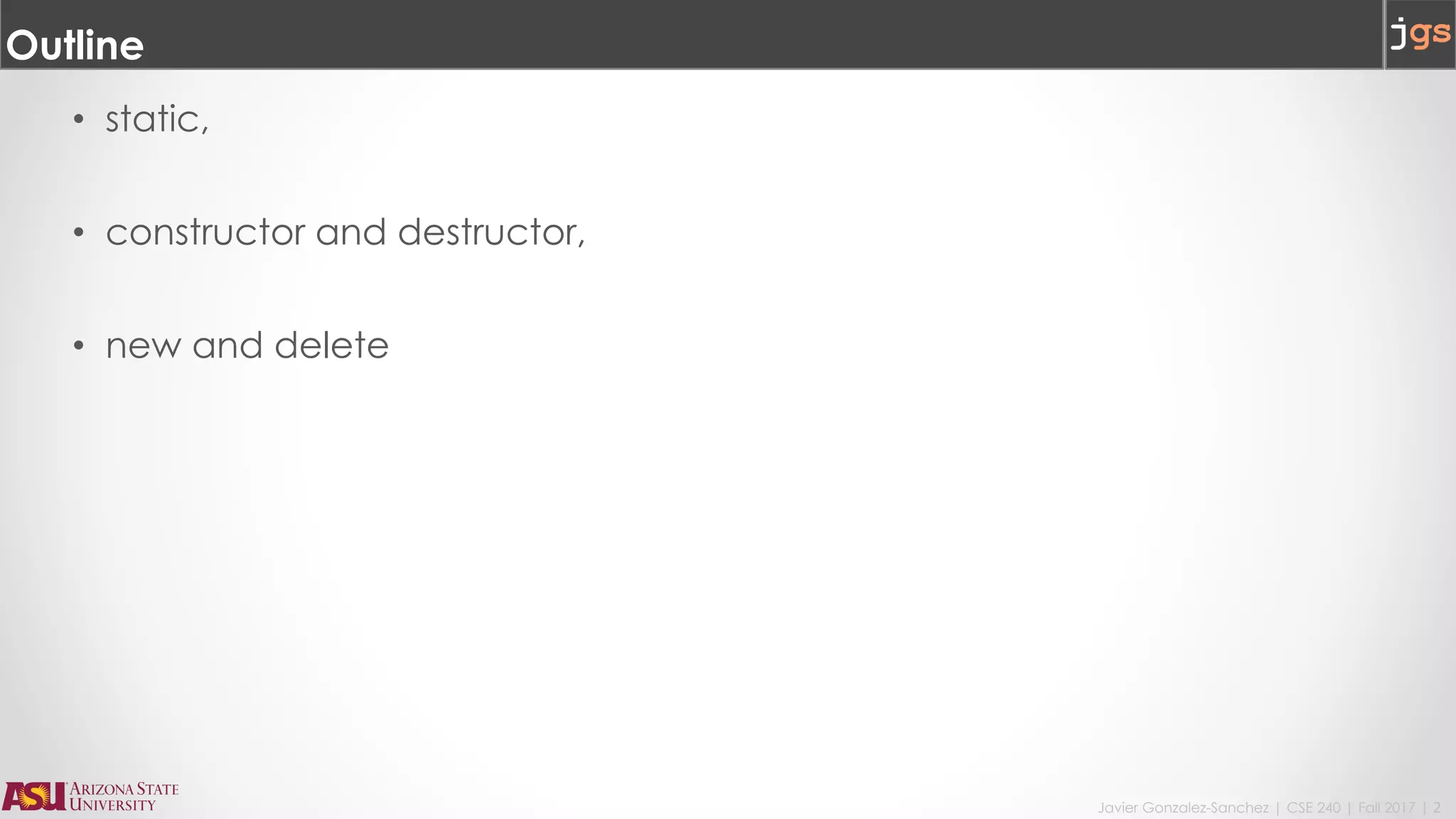

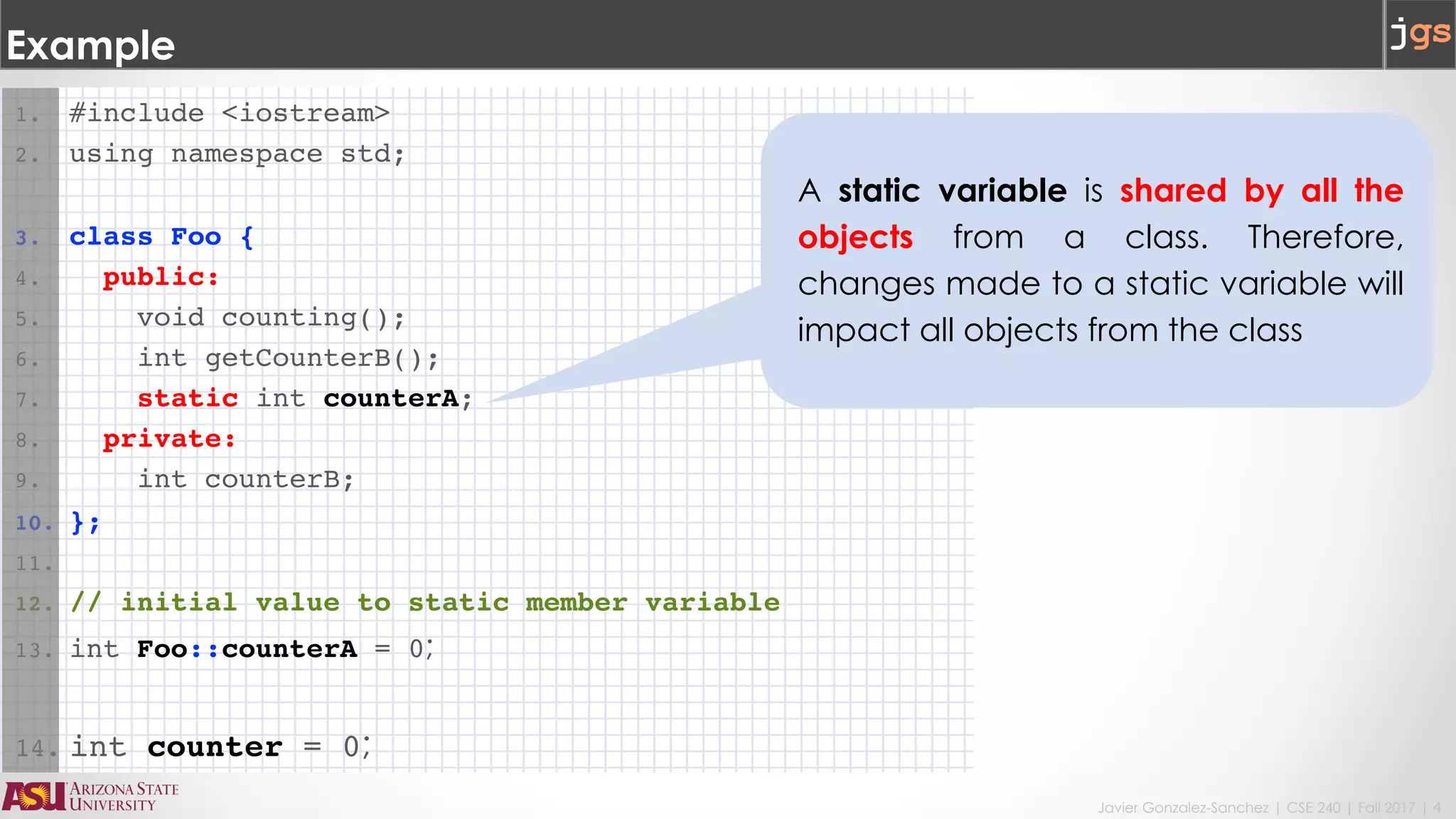
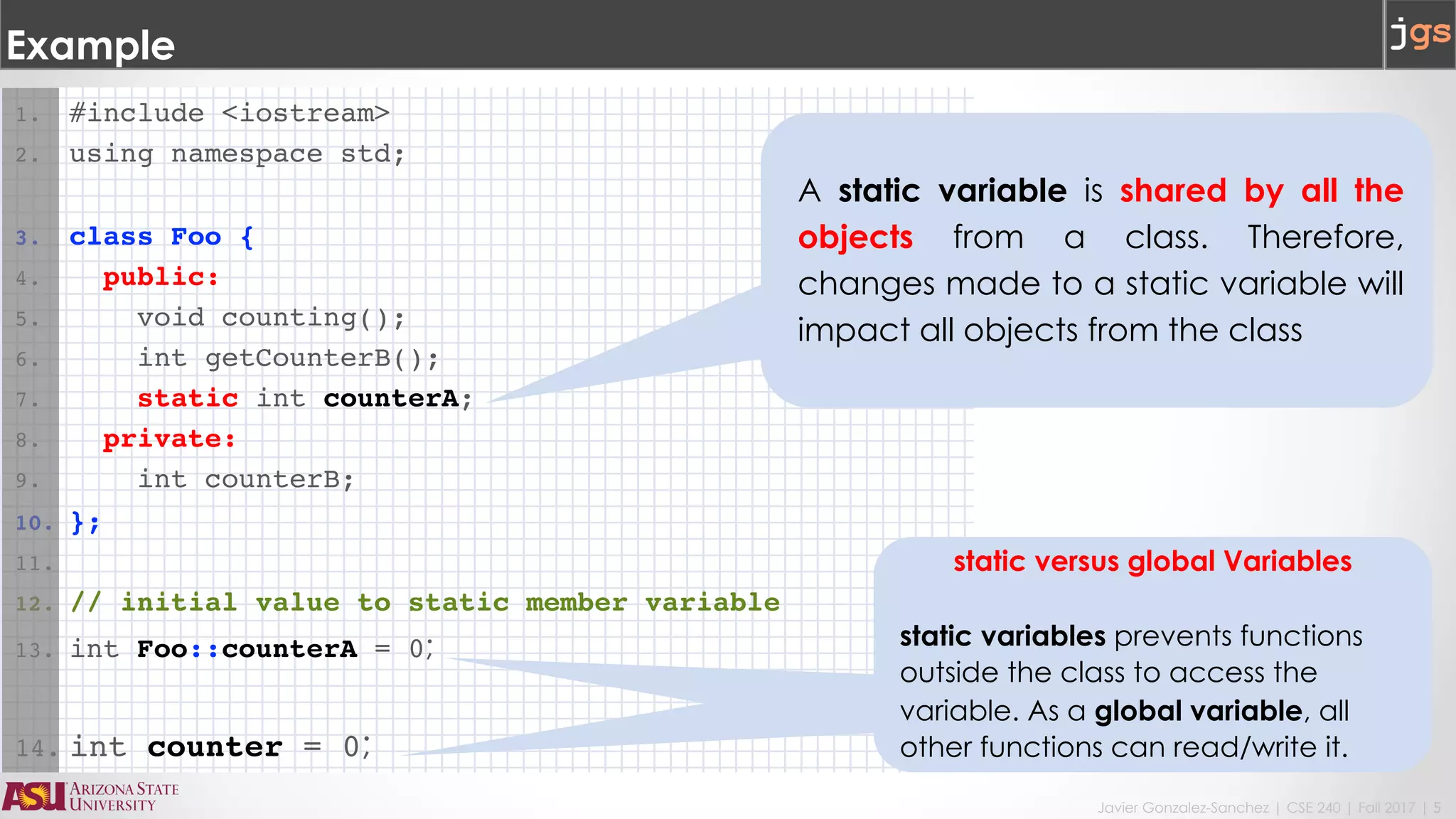
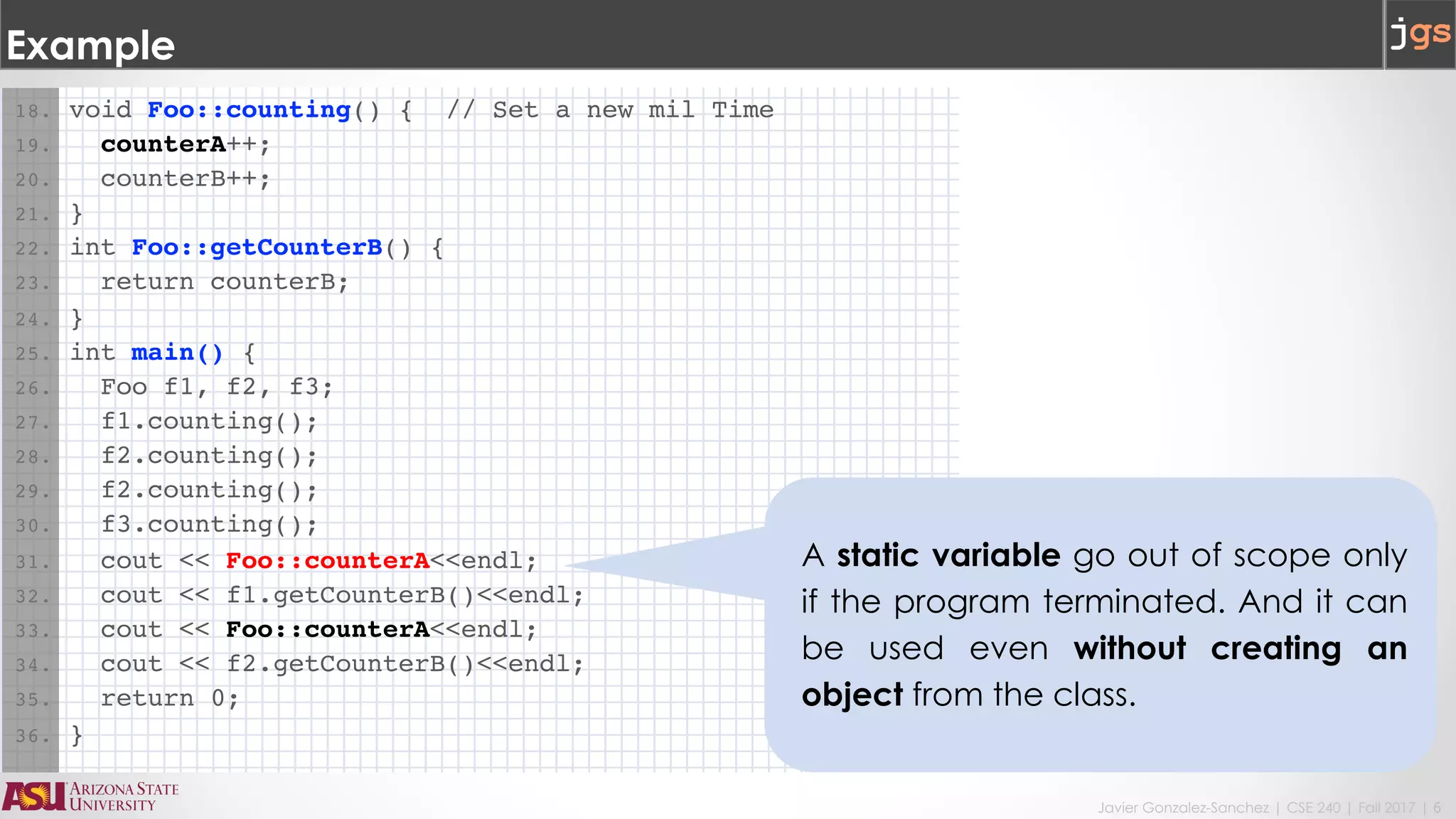

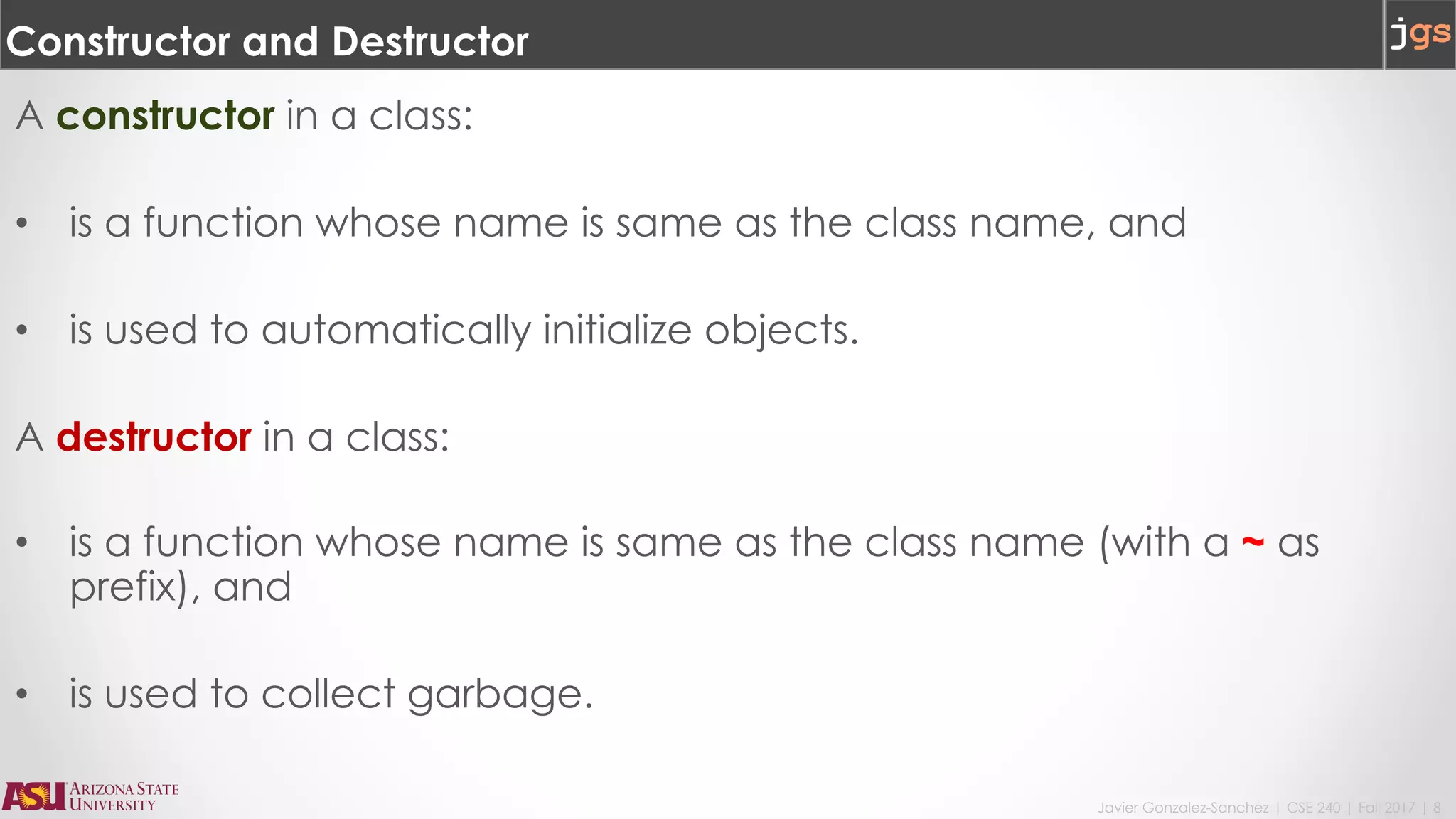
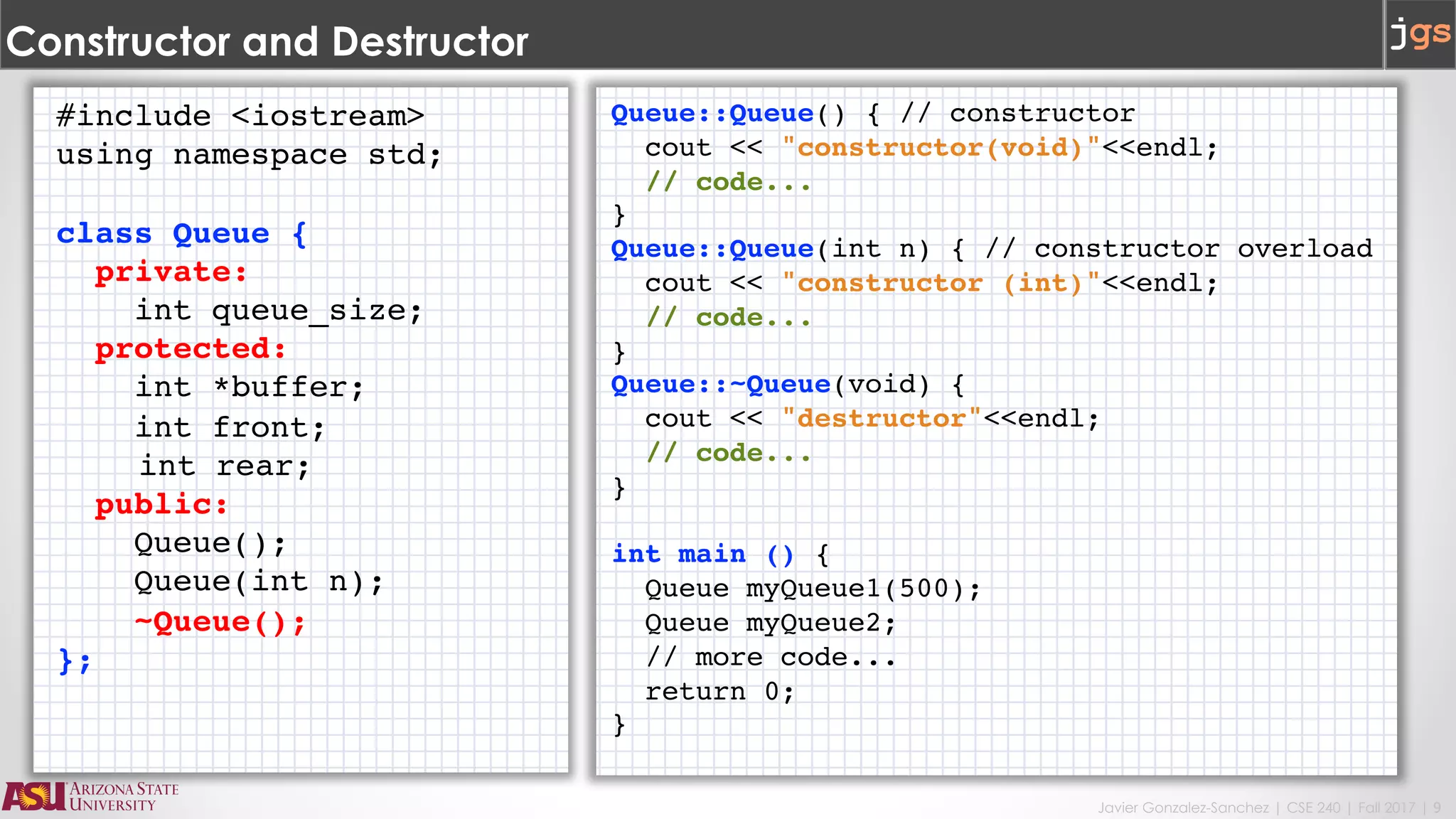
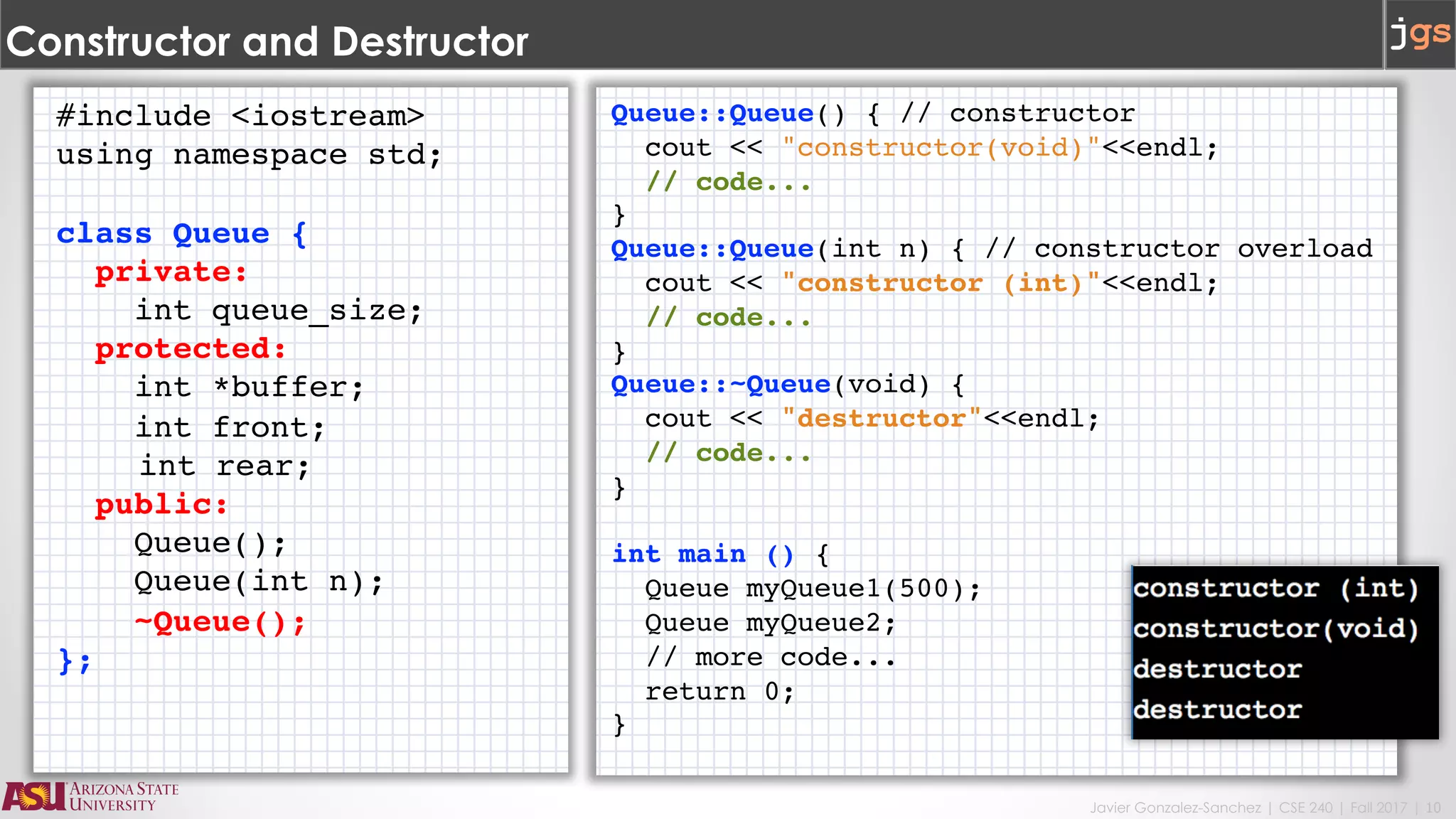
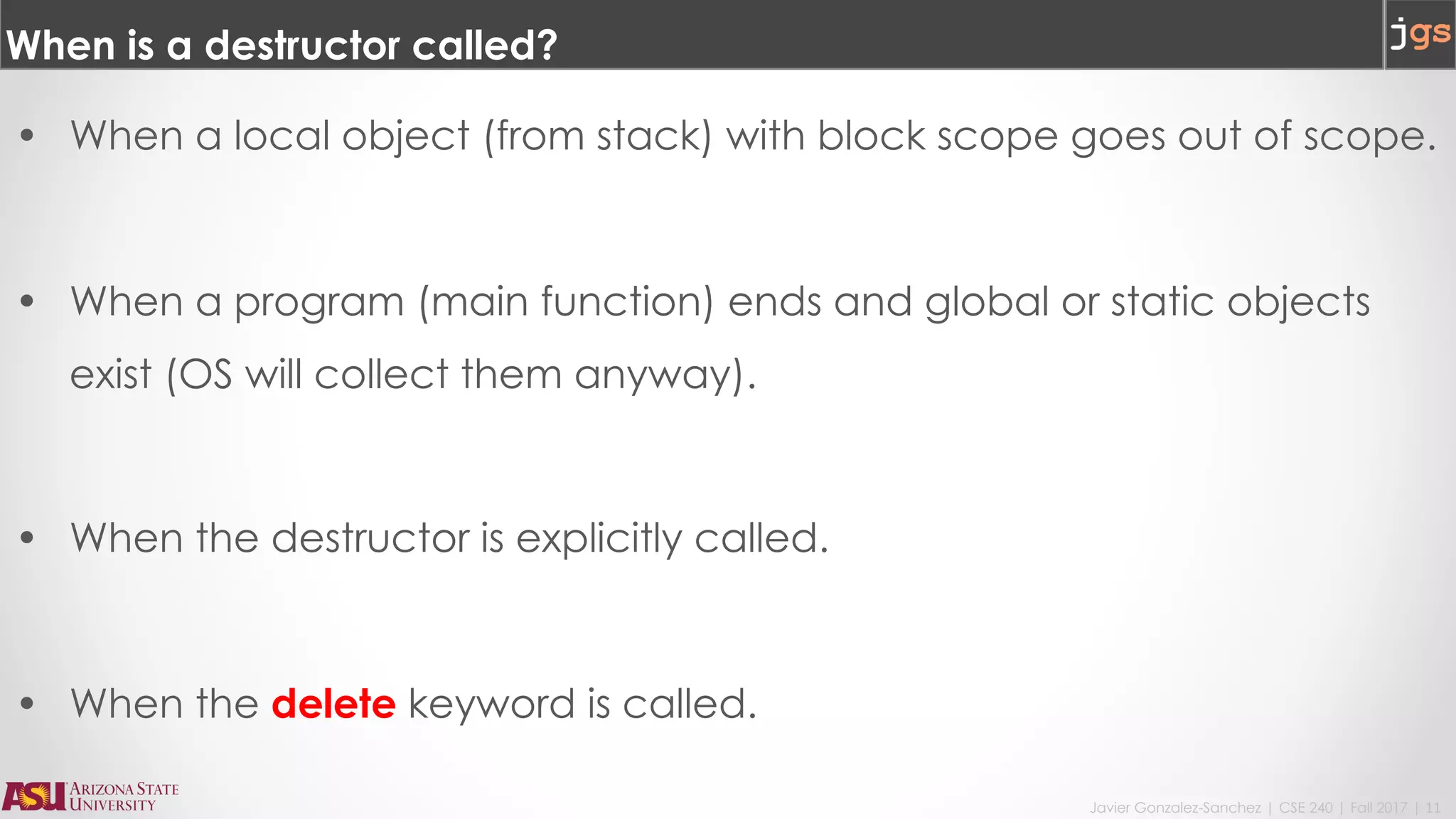

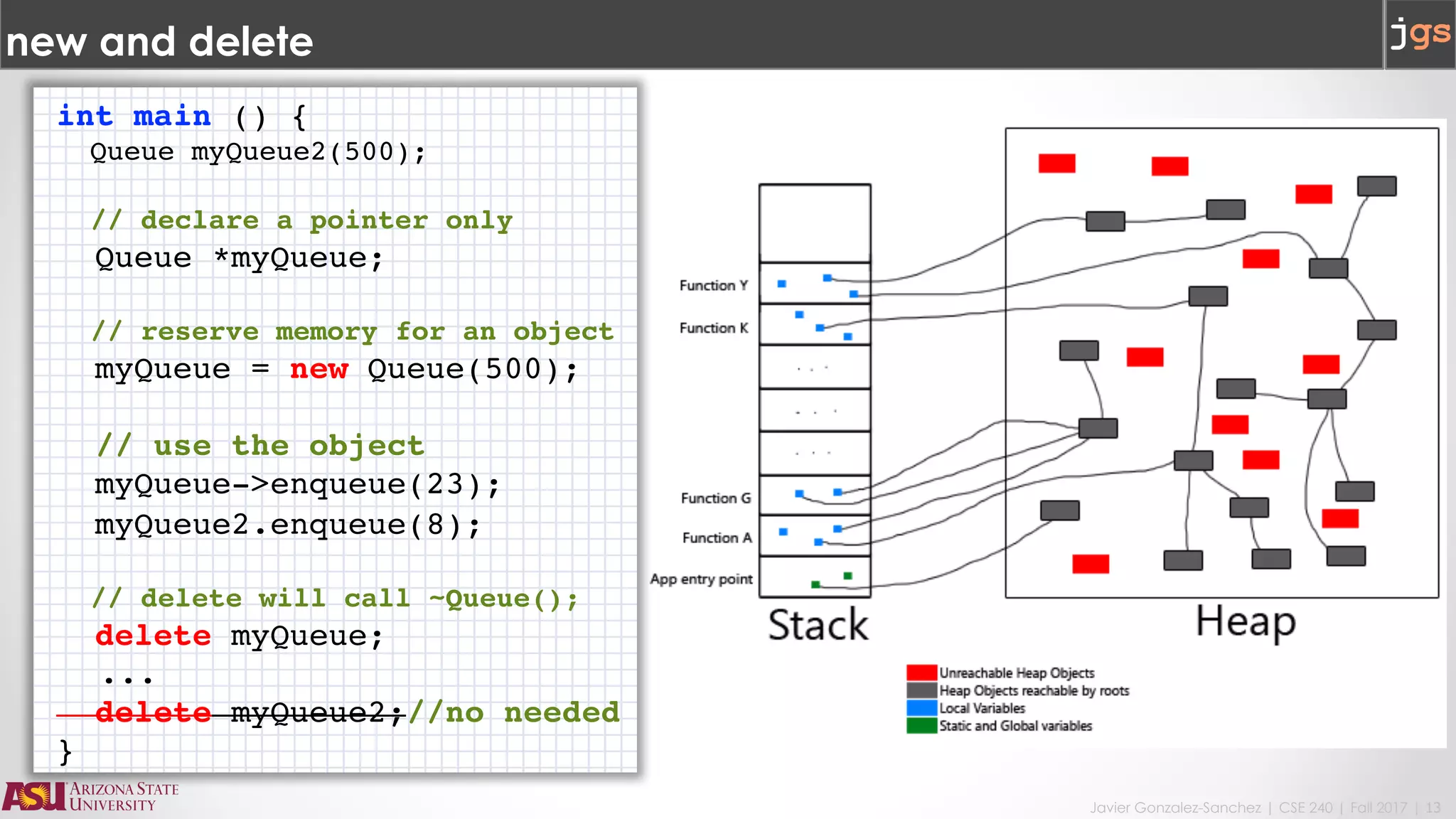
![Javier Gonzalez-Sanchez | CSE 240 | Fall 2017 | 14
new and delete with constructors and destructors
#include <iostream>
using namespace std;
class Queue {
private:
int queue_size;
protected:
int *buffer;
int front;
int rear;
public:
Queue();
Queue(int n);
~Queue();
};
Queue::Queue() { // constructor
cout << "constructor(void)"<<endl;
// code...
buffer = NULL;
}
Queue::Queue(int n) { // constructor overload
cout << "constructor (int)"<<endl;
// code...
buffer = new int[queue_size];
}
Queue::~Queue(void) {
cout << "destructor"<<endl;
// code...
delete [] buffer;
}
int main () {
Queue myQueue1(500);
Queue myQueue2;
Queue *myQueue3 = new Queue(100);
// more code...
delete myQueue3;
return 0;
}](https://image.slidesharecdn.com/cse240cl13cppmemory-180313080800/75/201801-CSE240-Lecture-13-14-2048.jpg)
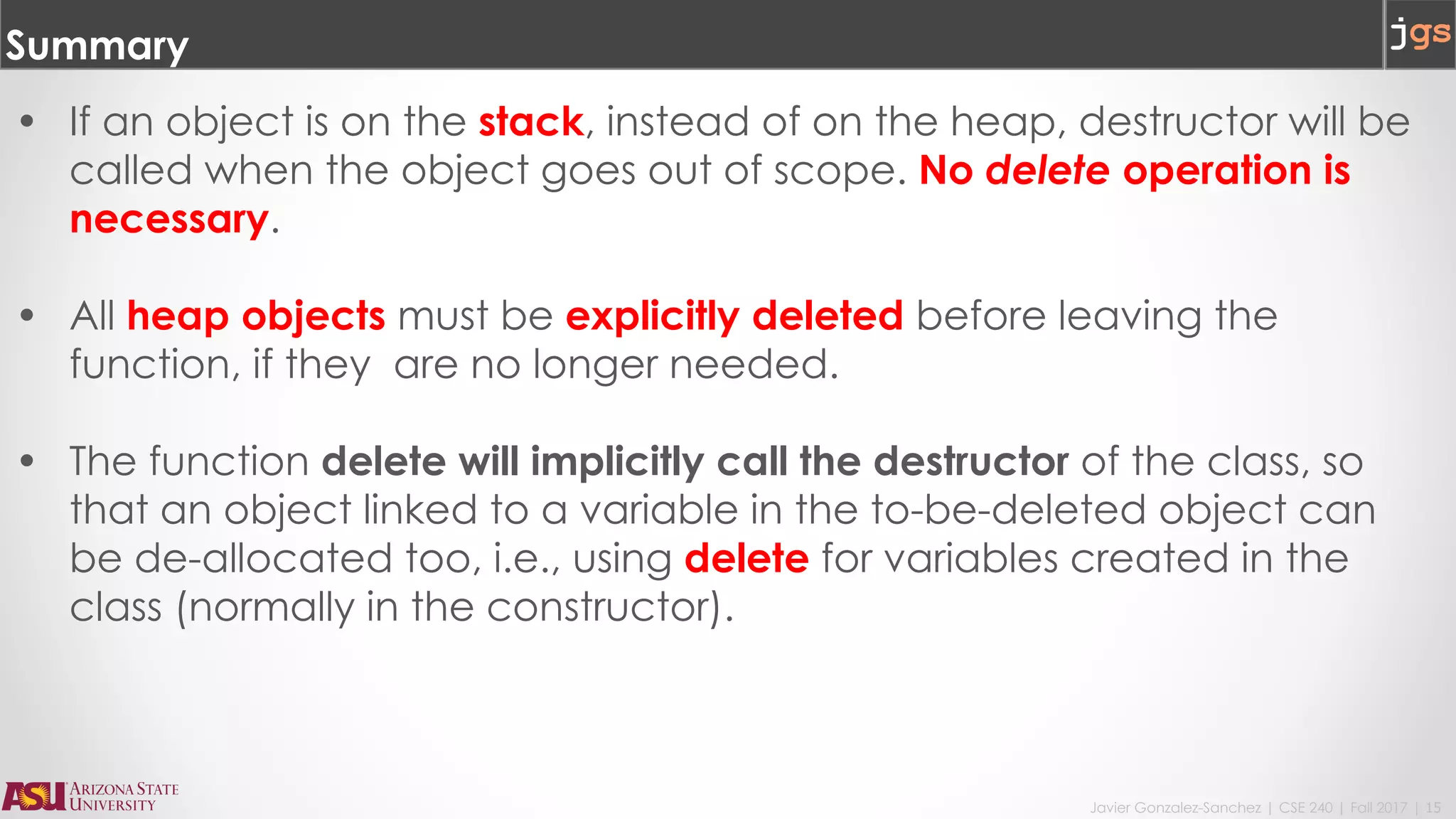
![Javier Gonzalez-Sanchez | CSE 240 | Fall 2017 | 16
delete and Array of Objects
#include <iostream>
using namespace std;
#define size 4
class arrayObject {
public:
int x; double y;
arrayObject() { cout << "arrayObject's constructor called" << endl; }
~arrayObject() { cout << "arrayObject's destructor called" << endl; }
};
int main() {
arrayObject *p, *q; // declare two pointers
p = new arrayObject[size]; // Create an array of objects
for (q = p; q < p + size; q++) { // Initialize the objects
q->x = 10; q->y = 1.5;
}
for (q = p; q < p + size; q++) {
cout << "Element address " << q << " Element x value: " << q->x << endl;
cout << "Element address " << q << " Element y value: " << q->y << endl;
}
delete[] p;
return 0;
}](https://image.slidesharecdn.com/cse240cl13cppmemory-180313080800/75/201801-CSE240-Lecture-13-16-2048.jpg)
![Javier Gonzalez-Sanchez | CSE 240 | Fall 2017 | 17
Summary
• How do we delete an array of objects?
We can use a loop to delete each element,
• However, the language provides a library function to delete all
the elements one by one without the user to explicitly use a loop:
delete[] array;](https://image.slidesharecdn.com/cse240cl13cppmemory-180313080800/75/201801-CSE240-Lecture-13-17-2048.jpg)
